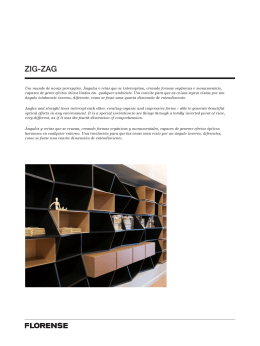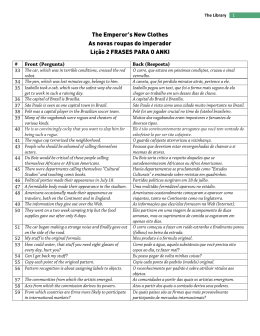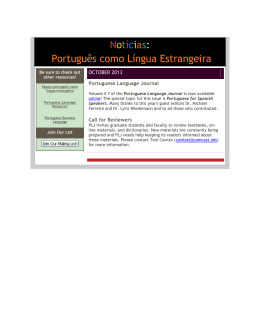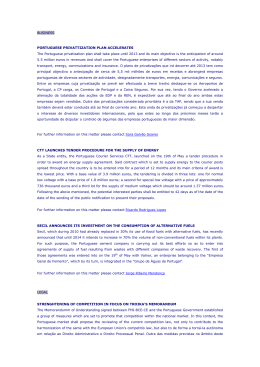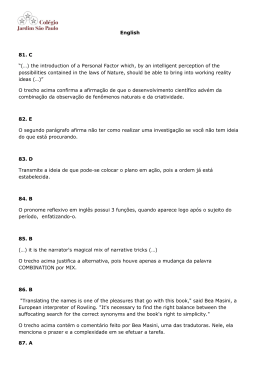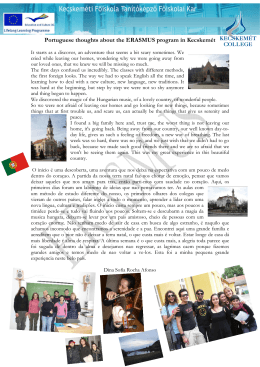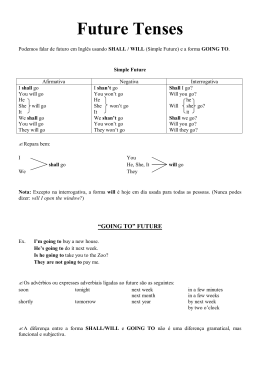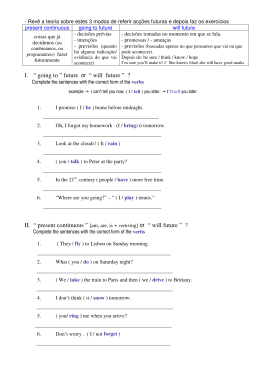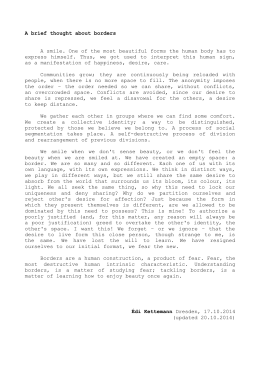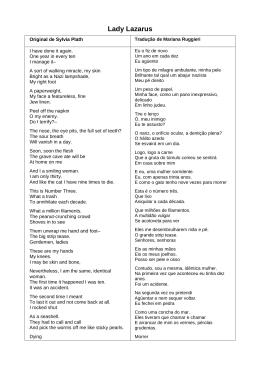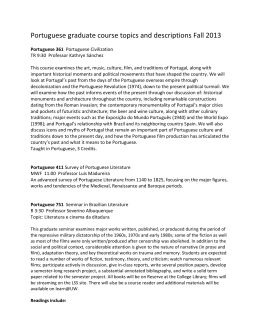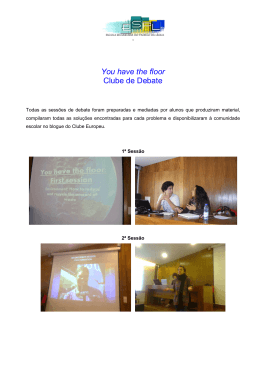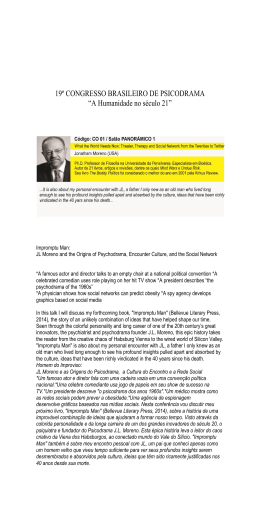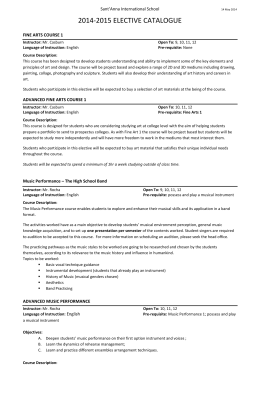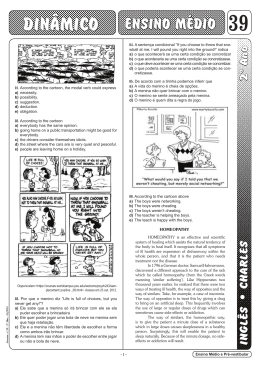PORTUGUESE STAGE 1 COURSE DESCRIPTION The following is a broad outline of what will be covered in Portuguese Stage 1. The course detail is explained in terms of: language topics and grammar, i.e. what you can do with the language plus the main tenses and structures covered. Please note that exact detail and order may vary depending on choice of class, coursebook and particular needs of the group. At beginner level the tutor will assume no prior knowledge of the language Topic areas: 1. Introduce yourself to someone and give some basic information about yourself such as where you live/what you do/your age/what you drink/what you want to eat. 2. Talk about other people and give the same kind of information about them as in (1) above. 3. Ask someone else about their habits, what they do, where they live, where they work etc. 4. Tell the time in Portuguese. 5. Talk about what you are going to do in the near future. 6. Ask for what you want in a shop. 7. Describe people’s appearance, clothing etc. 8. Express your likes/dislikes. 9. Give basic directions in Portuguese. Main Grammar Points: • present simple of regular ar/er/ir verbs e.g. falar, comer + decidir and most common irregular verbs: ser, ter estar, ir, fazer, haver, dizer, saber etc.. • subject pronouns: eu, tu, ele, etc.. • simple prepositions: em, de, com, para, por etc.. • question words: que, quem, quanto, quando, como, onde, porquê etc • masculine + feminine articles: um, uma, o, a etc. • adjective noun agreements, e.g. uma cerveja / duas cervejas • possibly a brief introduction into the use of the Portuguese Preterite Tense to talk about past actions and things we’ve done e.g. No sábado fui ao cinema / Fizemos muitas compras By the end of the course you should be able to communicate with a native Portuguese speaker who asked you the following questions: Há quanto tempo é que está em Lisboa? É a primeira vez que vem ao Algarve? Como é que se chama o seu amigo? Do que é que gosta mais na Escócia? A que horas parte o comboio para Coimbra ? Pode-me dizer se há uma farmácia aqui perto? Gosta da comida portuguesa? In trying to choose the correct level, you may have to balance what you know of the language (grammar, vocabulary etc) with your ability to speak it, since, depending on your personal history of learning the language, you may be stronger in one area than the other.
Download
